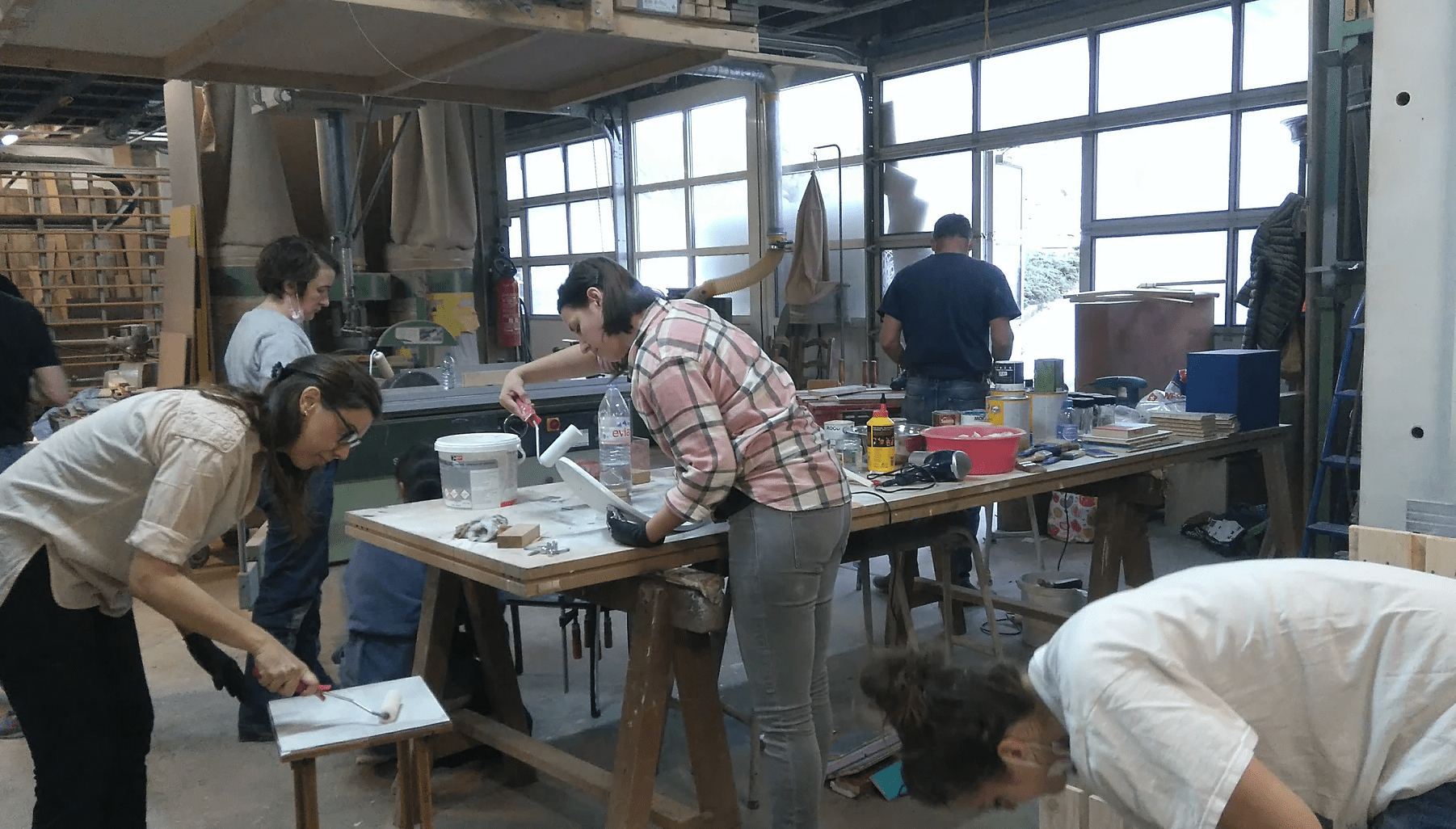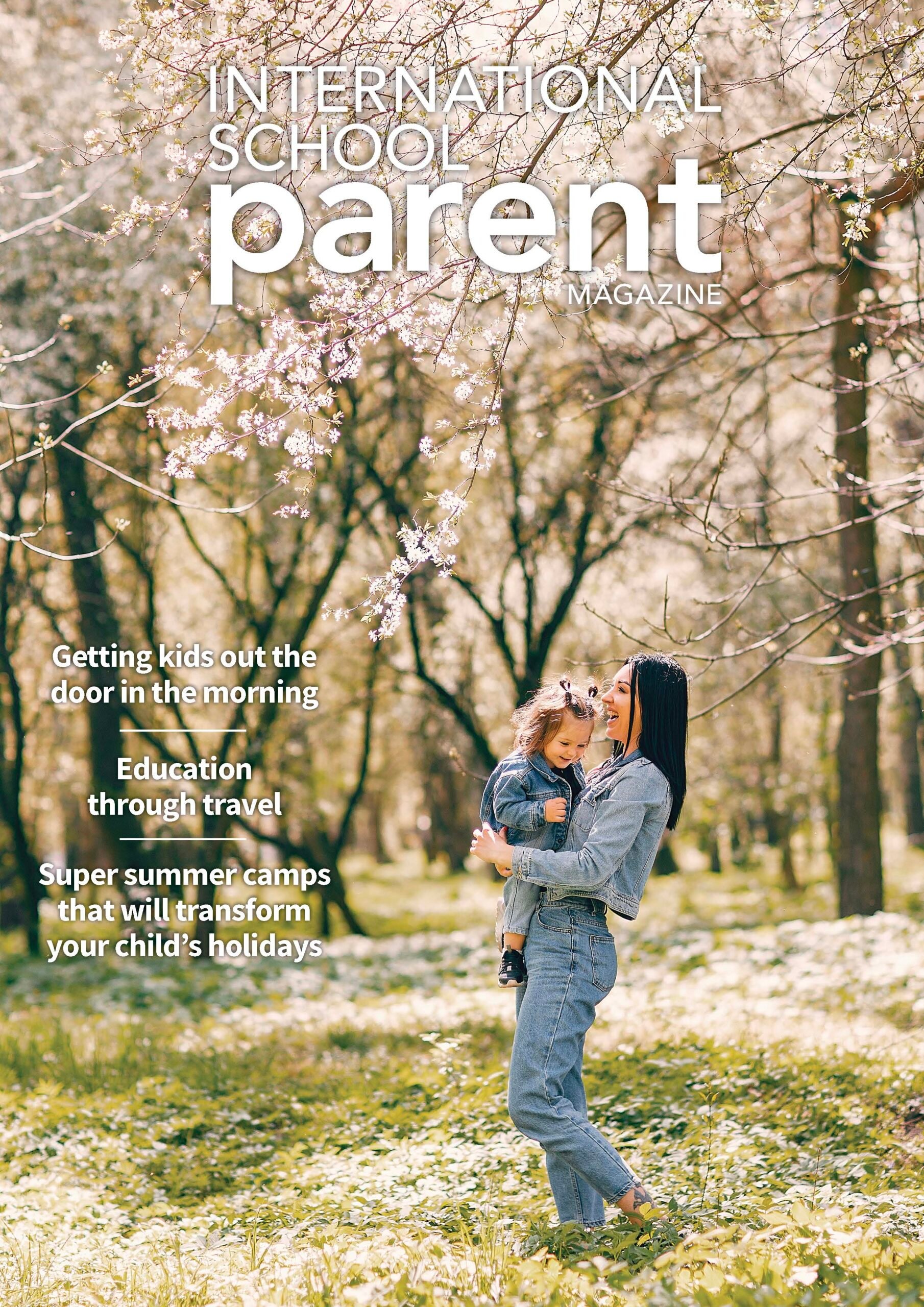Zsuzsanna Varga from Knock on Wood

What initially brought you to Switzerland?
We move around with my husband’s job at Red Cross and now he’s in the headquarters in Geneva.
What inspired you to co-start Knock on Wood?
I was looking for an urban workshop to cut my wood for my own hobby project, and since I didn’t find one but about 30 people joined my quest in a Facebook group, I decided to validate the idea. Our numbers have been growing ever since and today we are at 1200. I come from a country where we have always been makers and today it’s back in fashion to fabricate in cities.
Can you briefly describe Knock on Wood and who it’s aimed at?
It’s a two-phase project. In the current phase we take small groups of people, mainly city dwellers, into fully equipped workshops to realise their projects or get started with fabrications. In the second phase, which is where we are at this point, with similar makers groups, we’d like to set up a makerspace that offers more diverse activities all the while serving as a shared-machinery lab for prototyping and incubating for SMEs. It’s also a platform where fablabs and purely digital fabrications meet manual fabrications. If we manage to get this idea through, we’ll be able to welcome children, the elderly and people with special needs as well.
What are the principles that guide you when seeking to foster a sense of community through woodworking?
Woodworking is just one out of the many manual skills we are losing today. Many people have the desire to (re)discover these skills or simply just find meaningful connections between digital reality and the physical world. The makers’ movement is very strong in Europe and many cities have open workshops, makerspaces and other fabrication cafes.
Tell us about your workshops, what you do and why they’re great?
We worked out a methodology in which we do not teach in a traditional sense but allow participants to use their imagination, look at the material we have on offer and adjust a design to it. Quite often people have no idea of what they want or could make as they are not used to making in the general sense. Then we have a starters’ menu, from which they can select easy and satisfying activities. Manual work is slow. It takes a long time to see the product and today we expect instant satisfaction in every sphere of life. We try to take this into consideration when welcoming new participants.
What do you most enjoy about what you do?
We are always amazed by the latent, untapped creativity in people. It’s like an excavation. You know it’s there but since you haven’t used it or seen it for a long time, you need to dig deep. But then what you find often goes beyond expectations. It gives us a lot of pleasure to see this happening.
You’ve got a background in Language Training. How has that helped you in what you do now?
Experience in adult education and training is very beneficial when dealing with the general public. It allows me to anticipate problems and apply different methodologies to encourage adults to learn new skills.
How does being a parent yourself influence and shape your business?
Being an international spouse and mum means you need to reinvent yourself many times. Our kids are makers too. They were brought up this way.
What would you say are the three main things you have learnt from creating and developing your business?
- Dare to dream.
- Patience is a virtue. One has to work on a project no matter what everybody else thinks in the beginning.
- Always validate an idea first. If it’s valid, don’t give up. If not, pivot as fast as possible.
What were the main challenges when setting up your business in a foreign country?
Most of these challenges are still there. Being a foreigner there’s no societal support and it’s much harder to set up and run a local business. Language is a must in Geneva. I speak a few languages but French wasn’t one when I arrived and I’m still learning. It’s a major barrier when trying to build something from the ground.
What advice would you give to other parents living abroad who might be thinking about starting a business?
Import an idea from your country. There’s still room for many things in Geneva and if you have the right network and speak the language, you will succeed.
What is family life like for you in Switzerland? How do you make the most of living here? What do you like to do at the weekends with your kids?
Our kids are not that young anymore, therefore they have their own programmes too but what we all enjoy in Switzerland is the proximity of nature. We are out up in the mountains all year round a lot. This is priceless.
What does the future hold?
With other collaborators we are developing the project further in order to have a proper shared-machinery open workshop and incubation space. Investment is needed to do so, along with local political support.
More from International School Parent
Find more articles like this here: www.internationalschoolparent.com/articles/
Want to write for us? If so, you can submit an article for consideration here: www.internationalschoolparent.submittable.com
